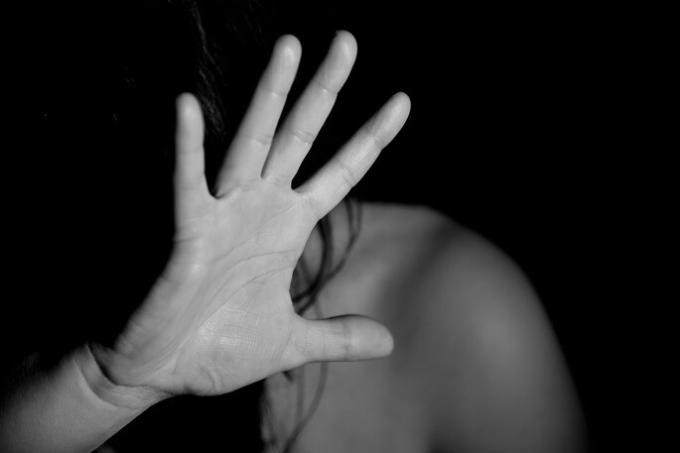The various types of violence differ based on the way they manifest themselves. They occur from the use of physical force or power over oneself, person or group, causing some type of damage.
The types of violence can be classified as physical, psychological, moral, sexual, economic and social violence.
Acts of violence may use one or more types of violence. As in cases of domestic violence, in general, acts of physical violence can be accompanied by psychological, moral, sexual or economic violence.
| Characteristics of aggression | acts of violence | |
|---|---|---|
Physical violence |
Use of physical strength |
|
| Psychological violence | psychological oppression |
|
| moral violence | Oppression or exposure of the person |
|
| sexual violence | Imposition of a sexual nature without consent |
|
| economic violence | Subtraction of goods or imposition of economic dependence |
|
| social violence | Repression or oppression of minority groups |
|
1. Physical violence
Physical violence is the use of physical force on someone. Slaps, punches, kicks, pulls, shoves or the use of any artifact with the aim of imposing oneself through the use of physical force, oppressing, injuring or causing any type of physical damage.
2. Psychological and moral violence
Psychological and moral violence, on the other hand, use offensive words or acts as a form of aggression. Humiliation, exposure, name-calling or oppression and submission cause the victim to be coerced without the need to use physical force.
3. sexual violence
Sexual violence occurs when acts of violence take on a sexual character. Harassment, abuse, rape and rape are considered acts of sexual violence.
These cases occur when there is no consent between the parties or when the victim is unable to oppose the act. As in cases of violence against children, the elderly, people with cognitive deficits, or temporarily unfit.
4. economic violence
Heritage or economic violence occurs when property or livelihoods are denied or taken away by a person or group. Thefts, robberies, subtractions or impediments can be characterized as this type of violence.
In some cases of violence against women, the aggressor uses the victim's financial dependence to oppress and subjugate her.
5. social violence
Social violence occurs due to the use of force by one social group over another. Discrimination, prejudice, disrespect for differences, intolerance or submission of a group is understood as social violence.
6. Domestic violence
Domestic violence occurs within the family nucleus. It can be caused by partners, relatives or guardians. Within this classification, cases of violence against women and cases of violence against children predominate.
Each category receives different attention from the State based on laws and forms of prevention.
violence against women
Violence against women can occur within marital relationships (legal marriage or intimate relationship) and the typifications and punishments for the aggressors are provided for in the Maria da Penha Law (Law 11.340/06).

In these cases, in general, are present:
- physical violence
- Psychological or emotional violence
- sexual violence
- economic violence
However, it is necessary to realize that violence against women can also occur outside the home or outside any type of intimate relationship.
Acts of this form of violence can be caused by known people or strangers, on the streets, in work environments, in social areas, etc.
violence against children
Violence against children occurs inside or outside the home from the imposition of physical punishment on the child. Other forms of violence stem from intimidation and persuasion.

As a way to curb the use of physical punishment against children, in Brazil, the so-called Spanking Law (Law 13010/14) was published. From it, aggressors can be punished in different ways. In cases of parents and legal guardians, punishments can go as far as loss of custody of the young person.
Other forms of violence against children are bullying and the cyberbullying, where children are humiliated at school or on social media.
See also the difference between:
- equality and equity
- types of bullying
- Prejudice, racism and discrimination
- Theft and theft?


